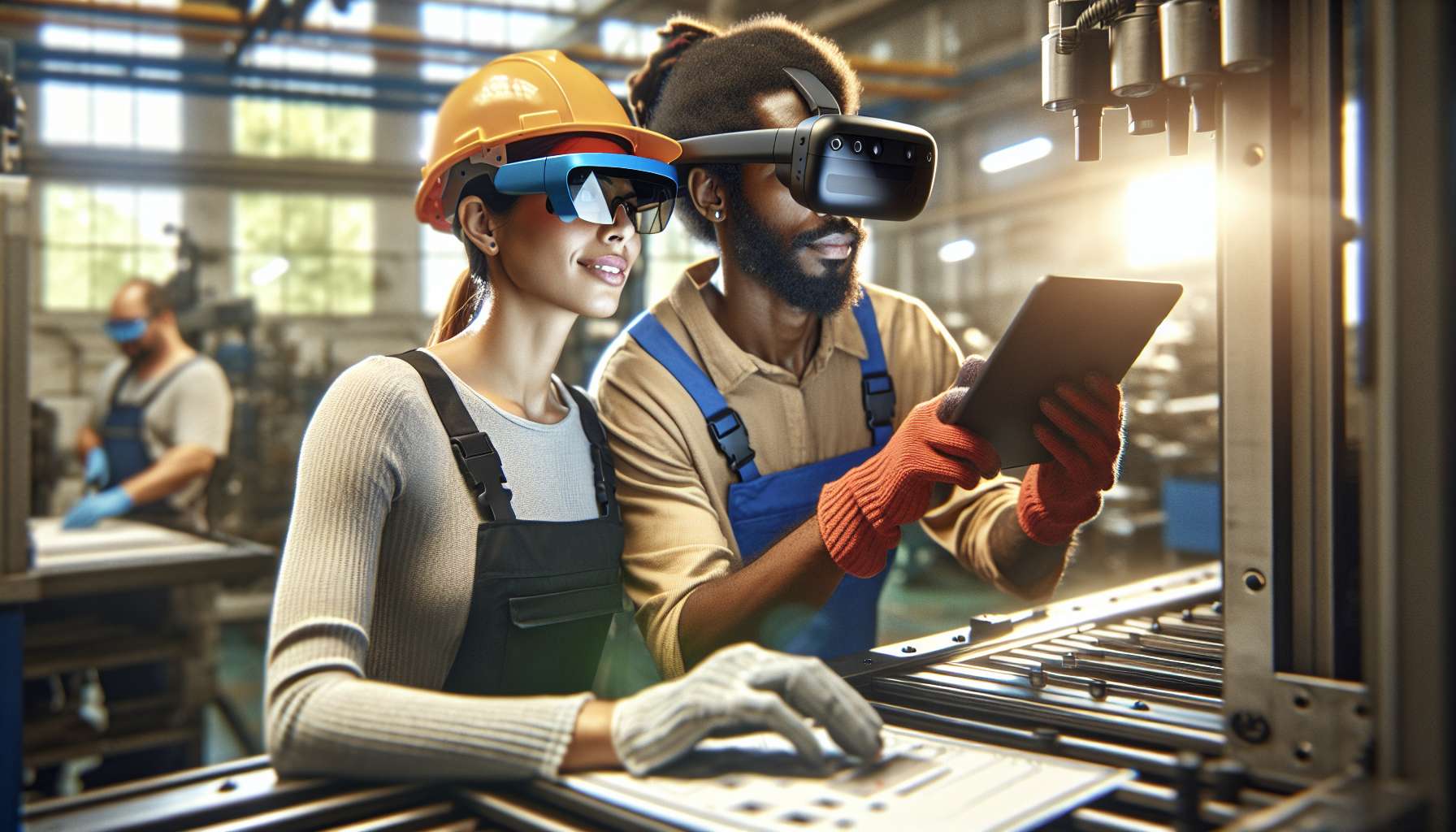Revolutionizing Manufacturing Quality Control with AR Applications
Augmented Reality (AR) has emerged as a game-changing technology with the potential to transform various industries, and manufacturing is no exception. By integrating AR applications into quality control processes, manufacturers can enhance efficiency, accuracy, and overall productivity. In this article, we will explore the practical applications of AR in manufacturing quality control and the benefits it brings to the table.
Streamlining Inspection Processes
Traditional quality control inspections often involve manual checks and extensive paperwork, which can be time-consuming and prone to human error. AR applications offer a more efficient and reliable alternative. By overlaying digital information onto physical objects, AR enables inspectors to access real-time data, instructions, and visual cues directly in their field of view.
For example, imagine an inspector wearing AR glasses while examining a product on the assembly line. The glasses can display step-by-step instructions, highlighting the areas that require closer inspection. AR can also provide real-time feedback, such as color-coded indicators, to identify defects or deviations from quality standards. This streamlined process not only saves time but also reduces the risk of errors, leading to improved overall product quality.
Enhancing Training and Onboarding
AR applications can revolutionize the training and onboarding process for quality control personnel. Instead of relying solely on traditional training methods, which often involve lengthy manuals or classroom sessions, AR offers an immersive and interactive learning experience.
With AR, new employees can visualize complex manufacturing processes, equipment, and quality control procedures in a simulated environment. They can practice identifying defects, following inspection protocols, and making informed decisions without the risk of damaging actual products. This hands-on training approach accelerates the learning curve, reduces training costs, and ensures consistent quality control practices across the organization.
Real-Time Data Analysis and Reporting
AR applications enable manufacturers to collect and analyze real-time data during quality control inspections. By integrating AR with artificial intelligence (AI) algorithms, manufacturers can automatically detect defects, measure product dimensions, and compare them against predefined specifications.
AR-powered devices can capture images or videos of the inspected products, which are then analyzed by AI algorithms to identify any anomalies. This data-driven approach eliminates the need for manual data entry and reduces the chances of human error. Moreover, AR applications can generate comprehensive inspection reports instantly, providing valuable insights for process improvement and decision-making.
Improving Collaboration and Remote Assistance
AR applications facilitate seamless collaboration between quality control teams, regardless of their physical location. Through AR-enabled devices, inspectors can share their real-time view with remote experts, who can provide guidance and support in real-time.
For instance, if an inspector encounters a complex issue during an inspection, they can use AR glasses to connect with a subject matter expert. The expert can then overlay digital annotations, instructions, or even 3D models onto the inspector’s view, guiding them through the troubleshooting process. This remote assistance not only saves time and travel costs but also ensures consistent quality control practices across multiple locations.
The Future of AR in Manufacturing Quality Control
The potential of AR in manufacturing quality control is vast and continues to evolve. As the technology advances, we can expect even more sophisticated applications, such as predictive analytics, augmented work instructions, and automated defect recognition.
By embracing AR applications for quality control, manufacturers can achieve higher levels of accuracy, efficiency, and productivity. The integration of AR with AI and other emerging technologies will further enhance the capabilities and impact of AR in the manufacturing industry.
As the demand for superior product quality and streamlined processes increases, it is crucial for manufacturers to explore and adopt AR applications for quality control. By doing so, they can stay ahead of the competition, reduce costs, and deliver products that meet or exceed customer expectations.





